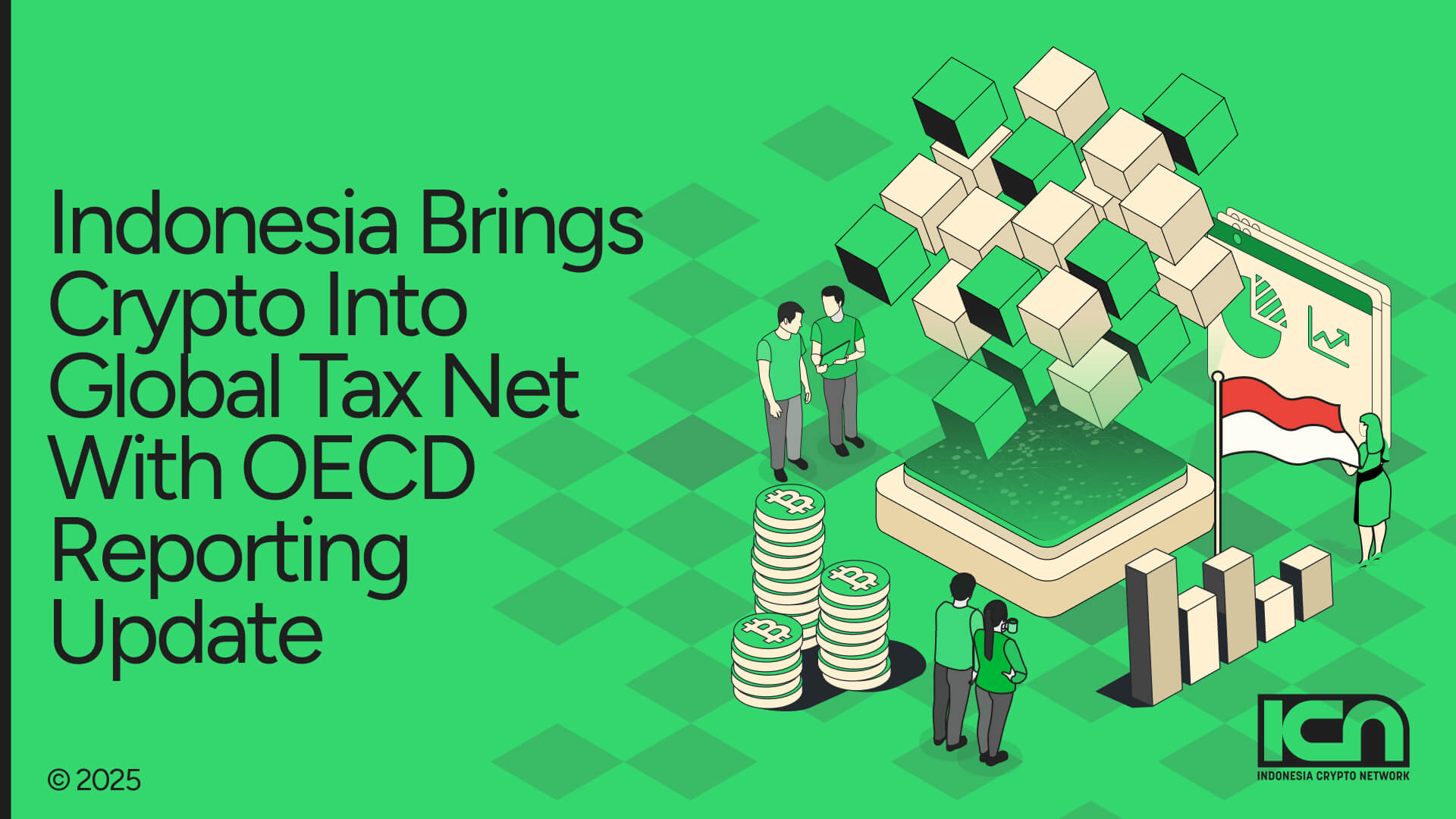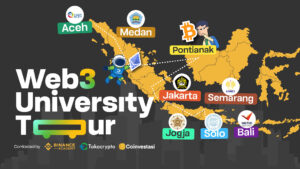Indonesia’s Finance Ministry is moving to align its tax reporting regime with global standards for digital finance, bringing crypto assets, e-money, and central bank digital currencies into the scope of automatic financial information exchange for the first time.
The Directorate General of Taxes (DJP) confirmed it will begin enforcing the Amended Common Reporting Standard (CRS) in the 2026 reporting year, with data sharing among participating jurisdictions set to start in 2027.
The move places Indonesia among the early adopters of the OECD’s updated framework, which expands beyond traditional bank accounts and securities to cover the rapidly growing digital asset economy.
The update reflects a fundamental shift in how global regulators view wealth and financial flows. Since the original CRS was launched in 2014, much of the world’s capital has migrated from banks to crypto wallets, stablecoins, and digital payment platforms — areas that had remained outside the global tax transparency regime. By integrating these asset classes, the OECD aims to prevent offshore concealment of digital wealth and strengthen oversight of cross-border holdings.
Indonesia signed the addendum to the CRS Multilateral Competent Authority Agreement in November 2024, reaffirming its commitment to data exchange and cooperation with OECD partners. The government is now preparing a new regulation to replace Finance Ministry Regulation No. 70/2017, aligning local law with the revised standard.
Under the amended rules, financial institutions will be required to identify controlling persons, verify the validity of self-certification, and report joint account information — in addition to declaring new categories of accounts. Officials emphasized that the CRS update will not overlap with the Crypto-Asset Reporting Framework (CARF), allowing data collection on digital assets to be consolidated without duplication.
While the change adds new compliance obligations for exchanges, fintechs, and custodians, policymakers say it also provides clarity. “Institutions must prepare now for the era of global reporting on digital finance,” the DJP said in a statement, urging firms to upgrade systems ahead of the 2026 deadline.
Read more: Indonesia Expands Crypto Asset List & Transfers Regulations to OJK
For Business, Clarity Comes With a Price
For companies eyeing Indonesia’s fast-expanding digital economy, the amended CRS represents both a compliance challenge and a strategic opening. By bringing crypto and e-money products under OECD supervision, Indonesia is sending a clear signal to international firms: this is not an unregulated frontier market, but a jurisdiction moving in lockstep with global financial norms.
That alignment offers comfort to investors and institutions long wary of reputational risk. Clearer rules mean smoother due diligence, easier onboarding, and a foundation for deeper cross-border collaboration. In practice, the new framework could unlock a wave of partnerships, from custody and tax-reporting providers to regtech firms building compliance APIs for KYC and AML integration.
At the same time, the transition carries operational weight. Global exchanges and fintechs will need to adapt to Indonesia’s evolving tax and data infrastructure, comply with OECD XML reporting formats, and integrate with local systems overseen by both the DJP and the Financial Services Authority (OJK). For smaller entrants, that complexity may be costly; for solution providers, it’s a commercial opportunity.
Increasingly, Indonesia’s market position looks like a natural regulatory sandbox — a large, retail-driven economy now testing the institutional frameworks that will define digital finance across Asia. For B2B players, the question is no longer whether to enter, but how to integrate.
Read more: Bank Indonesia Plans to Release Stablecoin Backed by Government Bonds
A Compliance Shift That Redefines Opportunity
The move comes as Indonesia’s digital sector continues to bolster state revenue. Between January and September 2025, the government collected Rp10.21 trillion in taxes from the digital economy, including Rp7.6 trillion from e-commerce VAT, Rp621.3 billion from crypto transactions, and Rp1.06 trillion from fintech lending.
For global investors and technology providers, the amended CRS underscores Indonesia’s transition from a retail-led crypto boom to a regulated, data-aligned financial hub. The OECD’s revised framework effectively ends the separation between traditional and digital finance. By bringing crypto into the fold of global tax transparency, Indonesia isn’t merely following international standards, it’s helping define how compliance, innovation, and growth will coexist in the next phase of financial globalization.
Read more: Indonesia Surges to #2 in Global Crypto Wallet Users
As regulation and opportunity converge, local partners who understand both the market and its compliance culture become essential. Firms like ICN, which bridges Web3 projects with Indonesia’s user base, policy environment, and institutional ecosystem, are well positioned to help global players translate regulation into real market traction. Because in Indonesia’s next phase of digital finance, clarity isn’t just about compliance, it’s the new competitive edge.
Ready to build your Indonesia strategy? Connect with ICN to explore how your project can navigate regulation, grow users, and build trust in one of the world’s most dynamic digital economies.




